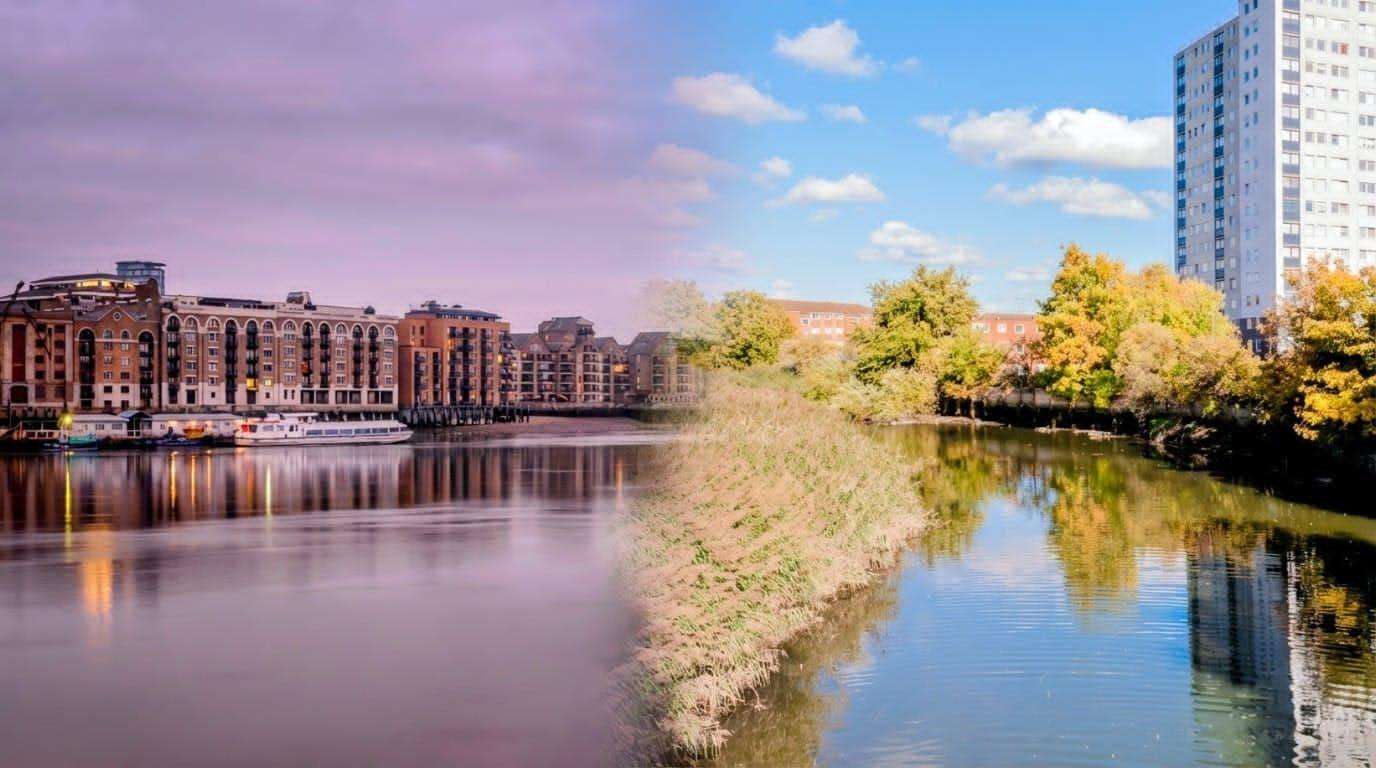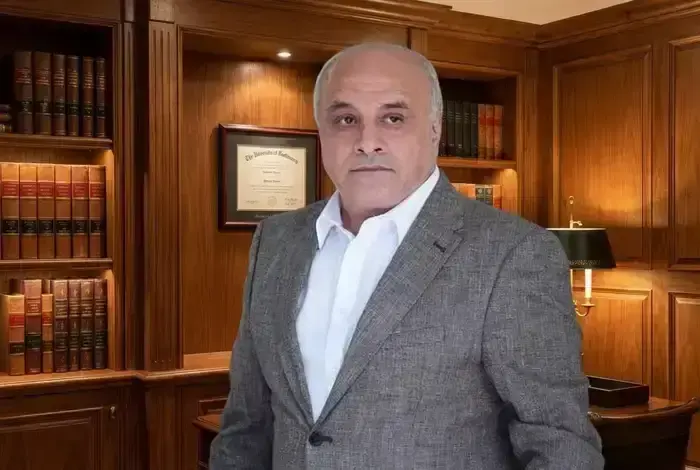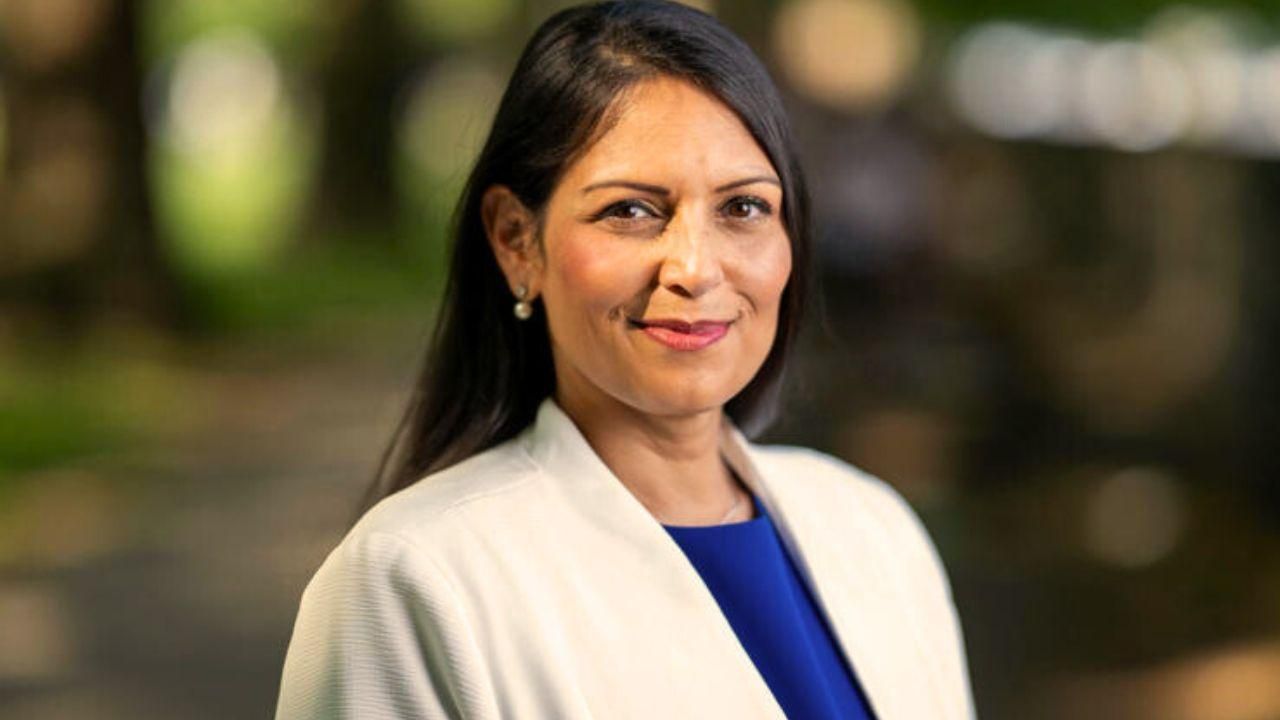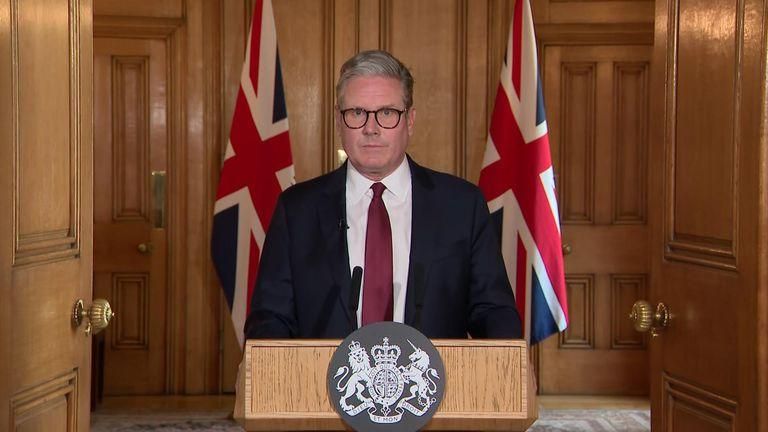From the bay window of her office across the road from Big Ben, Dame Priti Patel is gazing out over an almost perfect scene. Viewed from this lovely August afternoon are Westminster Abbey, the Thames, and the Houses of Parliament, all of which seem magnificent.
However, because it is also the perspective of an outsider looking in, it is a touch bittersweet for a lady who worked as a home secretary for three years.
Dame Priti resigned from the Cabinet when Liz Truss became prime minister, and for the last two years, she has been restricted to the back benches. She has had ample opportunity to contemplate her future, and she has concluded that leading the Conservative Party is what she wants to happen.
The bookies don’t fancy her chances, placing her fifth out of the six contenders. She and her team are convinced, though, that she will make it through to the four-person hustings bonanza that will dominate Tory conference in late September, where she believes she will remind MPs and party members alike what a real conservative looks and sounds like.
After 14 years as an MP, it seems hard to believe that this is the first time Dame Priti, 52, has run for leader, so often has she been talked about in previous contests. She is something of a darling of the party grassroots, often seen as being closer aligned with the wants and beliefs of the membership than almost any other Tory MP.
Her greatest battle, perhaps, will be to persuade the party that she represents the future, rather than the past, and after cracking open a can of chilled water, she gets straight down to business addressing that very point.
“Experience matters,” she says. “I had the privilege of going into the Treasury in 2014 and being part of the team that went on to win the 2015 election, and the same in 2019 as well. That is experience … I’m not going to hold that against those that haven’t had the type of depth of experience I’ve had.”
Maybe she won’t hold it against them, but she is certainly drawing attention to it. Who could she possibly be referring to? Certainly not Mel Stride, who at the age of 62 is 10 years older than her, or James Cleverly, who is 54. Might she mean Kemi Badenoch, the 44-year-old shadow housing secretary, who might well be the woman to beat? Or Robert Jenrick, who is 42?
Dame Priti is far too canny to get into personal attacks, but her next comment seems equally pointed.
“Opposition is tough, and I don’t think enough of our colleagues understand that,” she says. “It is gruelling. I do remember what life after 1997 was like, and I saw what worked and didn’t work.”
Dame Priti worked for William Hague when he was leader and stood unsuccessfully in a safe Labour seat in 2005.
Channelling Winston Churchill, she says the Conservative Party is now in its “darkest hour”, but it is at such times that “you see some of the strongest leaders being made”.
I ask what else makes up her “unique selling point”, and she adds: “I think probably character. I’m pretty resilient. I do know how to get stuff done. I’m consistent, I’m principled and people, I think, do know me for that.”
They also know her as one of Boris Johnson’s most loyal supporters. It was Johnson who made her home secretary, and it was Johnson who insisted he would “stick with Prit” when she faced a Whitehall inquiry into bullying allegations. Would she like to see him back in Parliament?
“He’s absolutely a good man,” she says. “Is he coming back? It’s a matter for him. But, you know, we should always recognise that one of the greatest moments for this party was the 2019 general election campaign – look at the result we achieved and the way we spoke to the country. He’s a political giant.”
Another of her friends is Nigel Farage, with whom she was spotted dancing at last year’s Tory Party conference. Should the Tories be courting him?
“Reform UK cost us seats in the election, so that’s not even a topic of discussion for me,” she says. Farage has been a friend “for years”, she adds, “but there’s a distinction between getting on with someone and recognising the fact that his mission was to destroy the Conservative Party. I will not allow that to happen”.
Dame Priti is clear that Reform UK must be beaten, not appeased, and that the way to do that is to get back to being conservative.
“It starts with the conduct of the Conservative Party in Westminster,” she explains, as an ineffective floor-standing fan wafts hot, muggy air around the room.
“The British public stopped listening to us a long time ago and we know why. They were watching the psychodrama in the Conservative Parliamentary Party day after day. We were in their lives too much. They want less of that. All of us have a degree of responsibility for that as well.
“We have to earn the right to be trusted and heard all over again. They don’t want to hear from us right now. We have to acknowledge that people are absolutely angry with us. We promised things and we failed to deliver. We’ve got to win back trust and confidence and show that we are professional, that we have standards, we have integrity, that we can do the job of the Opposition in a responsible and professional way.
“And it’s about focusing on the issues that the British people care about: their issues are our issues. The British public are our compass and they should be at the heart and centre of everything we do.”
Dame Priti, a mother of one, is the daughter of Ugandan-Indian parents who came to the UK in the 1960s and set up a chain of newsagents. Comprehensively educated in Watford, she was inspired to join the Conservatives by Margaret Thatcher, and worked in public relations before being elected as the MP for Witham in Essex in 2010.
She retained her seat in July with a reduced majority of 5,145, the second-largest majority of any of the leadership candidates, in an election where the median age of Tory voters was 63, according to YouGov, compared with 46 for Labour.
While the Tory vote is ageing, Reform UK took a higher vote share than the Tories among under-30s, which is worrying for the Conservatives but is also an opportunity, Dame Priti reckons.
“There’s a generation out there like us, and I’ve noticed this with the younger generation, they do love their country,” she says. “They care about our place in the world. They’re very proud of our nation. It’s also a whole generation wondering where the hell their prospects are going.
“When I joined our amazing party back in 1990, we were a go-getting party. We were excited. We were about opportunity. If you were a young person, you wanted to get on the property ladder, own your own home. You wanted the freedom to succeed, you wanted to get on, to think about how you brought up your family. We have to be the party of aspiration, we need to give them that hope and opportunity that fits with our values, British values.
“Because all we’re going to hear from Labour is that it’s all so terrible, because they’re the first to run our country down.”
Dame Priti has a unique ability to smile knowingly while expressing righteous fury, and she lets rip over the damage Labour is already doing to the country.
“I have to say, the tone of the Government has been quite nasty and quite hostile,” she says. “It’s hostile to people that pay their taxes. We need to be on their side, not against them, and the Government is firmly against them.”
Putting VAT on school fees is, she says, “nasty and vindictive, it’s the politics of envy”. Claiming there is an unexpected black hole in the public finances is “dishonest”. Promising planning reform while cancelling infrastructure projects is “speaking out of both sides of your mouth”.
Dame Priti argues that building more houses – the centrepiece of Labour’s plan for economic growth – will not in itself grow the economy.
Instead Labour should be creating employment, picking the industries it wants to support.
“You grow the economy by creating jobs,” she says. “What are these clowns going to do? They’re going to trap people into more welfare. They don’t understand the economy. Their programme is actually to destroy jobs and businesses, because they’re too busy listening to the trade unions.
“It’s definitely going to be a buy now, pay later government, and the British public will feel really let down by it.”
So certain is she of Labour’s impending failure that she “absolutely” believes the Tories can win the next election. But is it easier for someone from the Right, like her, to unite the Party by leaning in towards the centre, or is it easiest for a centrist who can lean in to the Right?
“So that’s exactly where we’ve gone wrong,” she says in response. “Factionalism. We need to forget all this stuff about previous groupings, because the public don’t care about that. And there aren’t enough of us anymore to be thinking in that way.”
It seems hard to believe that a party so addicted to caucuses (the One Nation Tories, the New Conservatives, the European Research Group, the list goes on) could clear out the stables, but Dame Priti believes it can be done if the Party goes back to being a meritocracy.
For years it has been “friends of friends of friends”, she says, which has been a turn off for the public. She does not name names, though Rishi Sunak hiring his best friend from school, James Forsyth, to be his political secretary springs to mind.
Despite Dame Priti’s refusal to engage with the idea of a Right-winger uniting the party by leaning towards the centre, her answers to questions on policy are revealing.
She will make her views on Britain’s membership of the European Convention on Human Rights known “in due course”, she says, but adds: “It’s always a bit of an excuse to just try to say that’s the answer to everything.” Not the answer I was expecting.
Nor will she talk about capping immigration. Her opponents intend to undermine her by blaming her, as the architect of the points-based immigration system, for the record levels of legal immigration we are currently seeing, but she retorts: “That’s just really lazy and shows a lack of understanding around immigration and how people just want to use immigration as a political tool.”
Points-based systems work well elsewhere, she says, and in the UK’s case it ended free movement while allowing the NHS to recruit the people it needed from abroad during the pandemic.
She does, though, maintain her belief in the Rwanda scheme, arguing that it was “part of a matrix of policy levers” that were already having a deterrent effect, and that: “We will probably see a European country do third-country removal before this country ever does.”
She also says it was a mistake not to build Greek-style detention and reception centres, for which she drew up plans during her time as home secretary and which she says would have reduced the need for costly hotel accommodation for migrants.
“As we learnt from Greece and other countries, if you have detention and reception centres, it becomes quite unappealing and quite unattractive to get on a small boat and come to your country,” she says.
She is equally uncompromising on tax. The tax band thresholds, frozen since 2021, must rise because “people have got to be able to keep more of the money that they earn”.
While she won’t discuss what future taxes a Patel premiership might cut, not knowing what state the economy might be in, if she had been in charge before now she “absolutely would have looked at reforming inheritance tax”, adding: “It’s really punitive, it’s regressive. You know, you either look to reform it or you look to abolish it. It’s not right.”
She would like to have seen a “clean sweep of business taxes”, including a reform of business rates and a cut in corporation tax.
“I grew up in an era where London was the home of capital finance,” she says. “We are simply not there anymore. The world has been eating our lunch. Companies are thinking twice about being listed on our exchanges. We’ve got to break that spiral of decline, because these are the people that create jobs, they create wealth, they create opportunities – that gives hope to people.”
She is a big fan of permitted development – converting empty shops and office buildings into accommodation as “the gateway to owning your first property if you’re a young person” – and wants to see much more of it.
She is also astonished at the way Labour has shut up shop on NHS and social-care reform, saying: “What kind of country are we, when people are having to sell their homes to fund their social care? We have to look at better models.”
Dame Priti does not pretend to have all the answers, and she says the Conservatives need to take time to get policies right over the next few years, as Lord Cameron did.
“We have time to reform and renew our party,” she says. “We have time to restore ourselves in terms of regaining the courage of our convictions and beliefs all over again. We have time to develop the policies – when David became leader he had various policy commissions.
“But we have to first and foremost earn the right to be heard and be trusted all over again.”
The Conservative and Unionist Party (Dame Priti always insists on using the full title, as local associations do) was once an election-winning machine. Dame Priti wants to return to the days when local associations were independent, “the life and soul of our party”, rather than top-down control. She wants to put local councillors “front and centre of that restoration and renewal” and engage properly with leaders of local government, who have been “totally ignored and sidelined on so many areas, including basic policies like planning”.
All of which will stand Dame Priti in good stead if she can hang on in the leadership race until MPs have whittled the candidates down to the final two, when party members will pick the winner.
If she fails in that, it won’t be for want of trying. I ask her if she is going to have any time to relax over the weekend, and she replies that she will be visiting eight different constituencies in two days. No one, to my knowledge, has ever accused her of being workshy.
“The British public have fallen out of love with us for very good reasons,” she says. “And I can tell you that kills me, it really does. We just need to be conservatives all over again. And that’s it.”








.svg)



